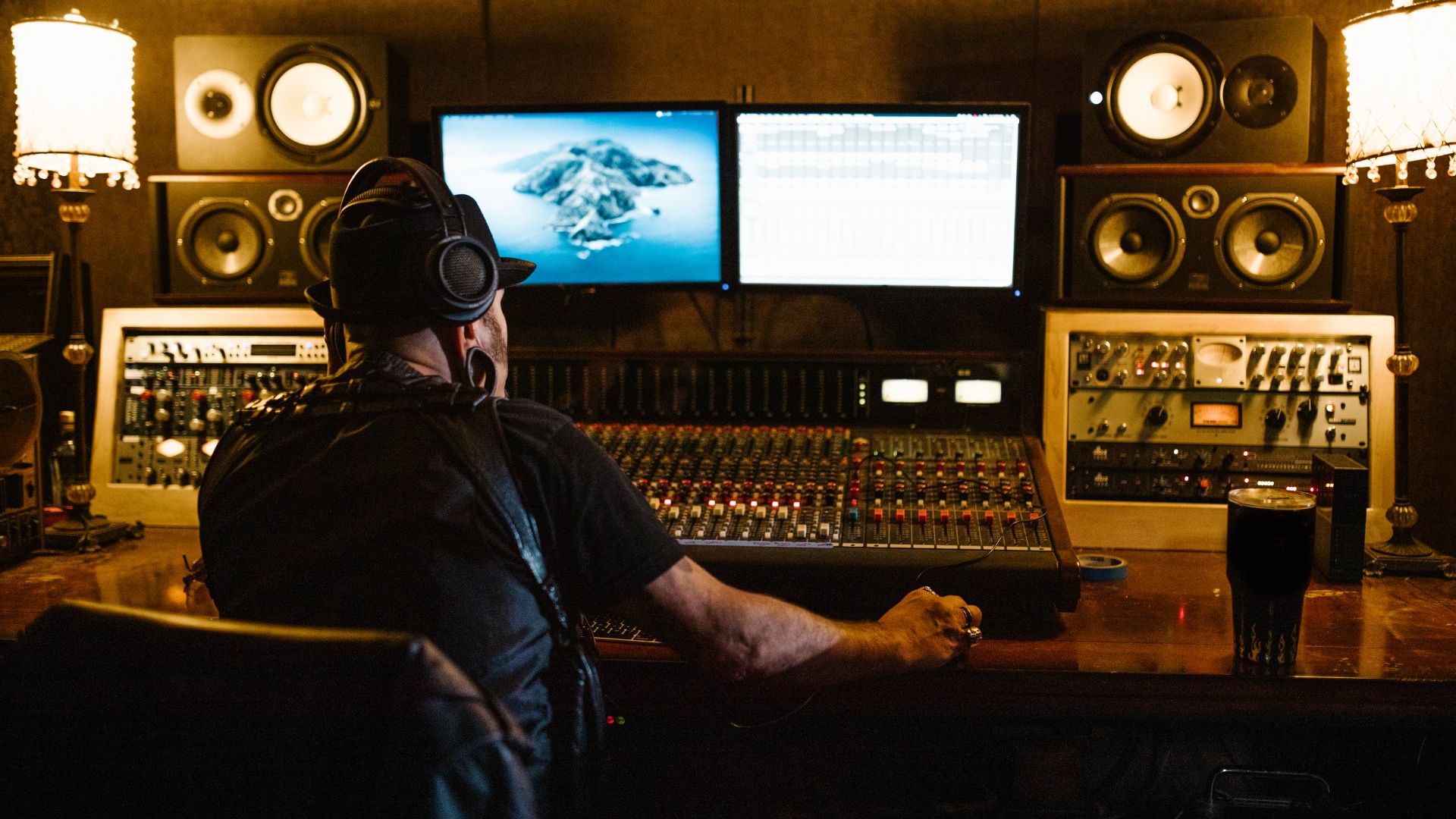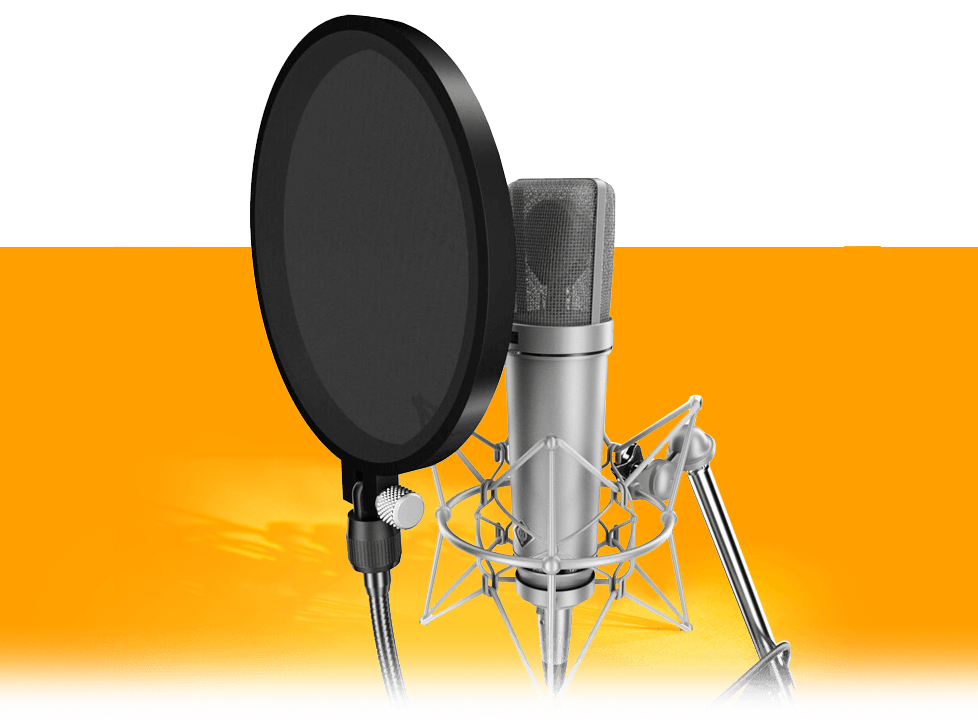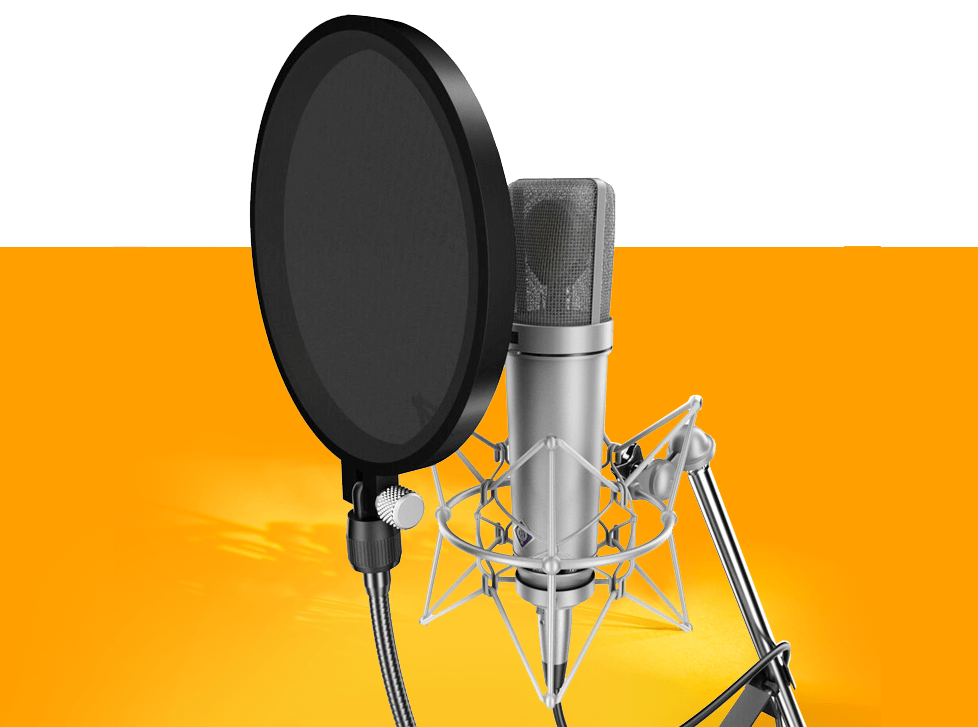The Day in The Life of a Music Producer
Jeremy Alves | January 18, 2023
Music and sound production is an exciting career not only due to its creativity but also because every day will be unique and often exciting. You’ll unlikely have the same workday twice in a row or even twice in a month.
Every working producer in the industry has their own ideal workday, different areas of specialty, and varying routines based on what works best for them. Having control over your workday and the flexibility to manage different projects and responsibilities is one reason why people are drawn to music production.
Ready to become a music producer? Keep reading to take a glimpse into what a day in the life of your future career might look like.
Dispelling Music Production Workday Misconceptions
Before diving into what a music producer’s workday is, let’s dispel some myths about what it has to be:
- Myth 1: Start a new song and work on it until it’s done: In the beginning, it’s good advice to focus on a song from start to finish. However, working producers rarely, if ever, work on a track straight through. Instead, they’ll put time into a track and come back a day or two later with fresh ears.
- Myth 2: Only work on one song at a time: Most producers work on multiple tracks throughout a day or workweek. Sometimes you want to focus on mixing or mastering, so you’ll do that for tracks in the final stages. On other days, you’ll need to record vocals for several different tracks. So it’s unusual for producers to only work on one song at a time until it's finished.
- Myth 3: Finish every song you start: Sometimes, a track doesn’t have the sound or feel you were going for. Don’t lock yourself into finishing every song you start; sometimes, it’s better to start over rather than try to save a track that took a wrong turn.
- Myth 4: Work on tracks eight hours every day: Working on tracks is essential, but you must also listen to music, explore new VSTs and technologies, and stay on top of industry news. Working on tracks constantly can ultimately hinder your creativity and even the quality of the final result.
Some of these misconceptions may end up actually working for you, but they’re myths because they’re often thought of as rigid rules. A great thing about music production is there are no rules about how you structure your workday.
Days Can Vary Dramatically
Music producer programs will teach you various tools, techniques, and processes to help you build your ideal work routine. You’ll learn what works for most producers and less popular but still effective processes worth considering.
Let’s explore some common daily tasks music producers tend to work into their routines. Be aware that not every day needs to be exactly the same; you might spend an entire day on one of these items or all of them and more in a single day.
Producing New Music or Revisiting Ongoing Projects
It’s common for producers to have several, sometimes dozens, of ongoing projects at a time. But, even then, you might have a sudden inspiration or assignment that calls for creating a new project.
Producers often bounce around between ongoing tracks to keep things fresh. For example, they may have an idea for a bassline for one track, then be inspired to change the 808 pattern on another. Not having rigid guidelines allows producers to work on whatever they want, provided they meet applicable deadlines and responsibilities from employers or clients.
Research, Explore, and Develop
Producers must stay on top of emerging trends, technologies, and industry news. It’s common for producers to set aside time every day, often in the morning, to check music news sites and producer-focused communities to stay aware of any changes that might impact their jobs.
For example, VSTs are a necessary tool for producers. If a new VST comes out that might help with a specific process, it’s worth exploring. Additionally, popular VSTs might have updates that need to be done manually, and missing out on updating means not having new features.
Sound Design and Recording Time
Sound design is the art of crafting specific sounds for your tracks. Some producers will do this during the overall production process, while others set aside specific time to dive into their synths or gear and create unique sounds.
Depending on your job, you might have entire days working with recording artists to capture vocals for their albums. Vocalists might want to record multiple tracks in a single session, so it’s impractical to try to produce the rest of the track simultaneously. Instead, you’ll focus on ensuring you have the right vocals you need to work with later.
Workout Your Ears
A little-known side effect of music production is ear fatigue. It’s a common phenomenon for music producers who spend hours or days on a single track. It’s part physiological and part psychological, and the result is you no longer accurately understand how your track sounds.
You might export a track at night and think it’s incredible, only to listen to it the following day and dislike almost everything about it. This experience is an example of ear fatigue in practice.
To combat ear fatigue, take breaks to work out your ears. Listen to something else, whether it’s a podcast, music from your favourite producer, or nothing at all. Take ear workout breaks throughout your day to keep ear fatigue at bay; you’ll prevent spending hours working on track you end up throwing away.
Mixing and Mastering
These two distinct processes focus on creating the final product ready to export and finalize.
Mixing
is a variety of techniques concerned with balancing all the individual tracks in a song to blend and create the exact sound you’re after. An example of mixing is setting your high-hat track to auto-pan every bar and changing it to -2 decibels. You may then side-chain your kick to the bassline or increase vocals by 0.5 decibels.
Mastering
is another set of techniques that fine-tunes the entire track, so it sounds great regardless of where it’s played. Like mixing, mastering also focuses on creating the exact sound, mood, and feel you want. Detailed equalizers, limiters, specialized mastering engineers and a properly treated studio are the standard tools used in mastering.
When it comes to a producer's day, they might set aside time to mix and master several ongoing projects over a few hours. Some producers also mix as they produce and then just do a final check before moving on to mastering. Ultimately, it depends on the producer’s workflow.
Workdays Are Also Based on Your Career
An added factor that influences your workday is how you build your career. You’ll have more restrictions if you decide to become an in-house producer for a recording label or studio. For example, you might be expected to go to the office every day and spend some time in the studio or have a busy schedule working with recording artists.
Conversely, suppose you work independently and sell finished tracks to artists or license them to businesses. In that case, you’ll have more control over your workday and be free to do whatever helps you consistently produce new tracks to keep generating revenue.
Check Out These Grad Spotlights
Want to see what a real OIART grad does in a day? Check out the following grad spotlights for some inspiration!
- Ryan Tuer - Scary Gnome Productions - Owner & Operator
- Graduated OIART in 2000
- Watch the YouTube Video
- Matt Andrews - Sovereign Audio - Owner
- Graduated OIART in 2021
- Watch the YouTube Video
- Anton DeLost - Room 21 Sound - Producer, Engineer, Songwriter & Mixer
- Graduated OIART in 2012
- Watch the YouTube Video
- Joel Harder - JKev Music - Freelance Mix Engineer
- Graduated OIART in 2021
- Watch the YouTube Video
Ready to Skill Up? Get Formal Training and Recognition with OIART
Careers in music production are incredibly diverse, exciting, and creative. You’ll have more control over your average workday than many other careers and spend your time focusing on music, trends, and working with artists.
You can undoubtedly start producing without formal training, but you may need industry-recognized qualifications to overcome plateaus or land a job as an in-house producer.
The Ontario Institute of Audio Recording Technology (OIART) is one of the best music production schools in Canada. We prepare you for a long, fulfilling career in the music industry. You’ll learn the latest techniques and technologies and have a strong understanding of navigating the industry.
Ready to start your new career?
Apply today and start working towards your ideal workday.
Ready to Start?
OIART's Audio Program Includes:
✓ Small Class Sizes
✓ On Site Facilities
✓ Industry Leading Instructors
✓ Post Grad Support & Guidance
✓ Exclusive 11 Month Program
Top Reasons Why You Should Choose OIART.
Have Questions?
If you have questions about our audio engineering and music production program or would like to book a tour, we would be pleased to speak with you.
Text Us: 519.200.4151
Share This With a Fellow Music Lover
Apply in 4 Steps!
Step 1: Click apply now.
Step 2: Answer 8 questions about yourself.
Step 3: Upload supporting documents.
Step 4: That's it! You are done.
Share this with fellow music lovers



